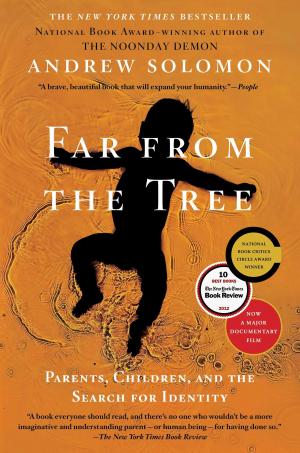| Author: | Ann Blackman | ISBN: | 9780684864310 |
| Publisher: | Scribner | Publication: | July 14, 1999 |
| Imprint: | Scribner | Language: | English |
| Author: | Ann Blackman |
| ISBN: | 9780684864310 |
| Publisher: | Scribner |
| Publication: | July 14, 1999 |
| Imprint: | Scribner |
| Language: | English |
When Madeleine Korbel Albright was sworn in as secretary of state in January 1997, she made headlines around the world. She was the first woman to rise to the top tier of American government and had a reputation for defining foreign policy in blunt one-liners that voters could understand. When her Jewish heritage was disclosed, people were intrigued by her personal story and wondered how it was possible -- if it were possible -- that she truly could have been ignorant of her past.
Veteran Time magazine correspondent Ann Blackman has written the first comprehensive biography of Madeleine Albright. The book reveals a life of enormous texture -- a lonely, peripatetic childhood in war-ravaged Europe; two harrowing escapes from her homeland, once from the Nazis, then from the Communists; her arrival in America; Madeleine's unhappiness as a teenager in Denver, always the outsider, the little refugee; her marriage into an old American newspaper family with great wealth.
When, after twenty-three years, the marriage failed, Albright was devastated. But in many ways, divorce liberated her to pursue a lifelong interest in government and international affairs. From Senator Edmund S. Muskie's office to President Carter's White House to a professorship at Georgetown University's School of Foreign Service, Albright gained experience and contacts. As a foreign affairs advisor to Democratic vice-presidential candidate Geraldine Ferraro and, later, presidential candidate Michael Dukakis, Albright positioned herself to return to government as President Clinton's ambassador to the United Nations and eventually to claim her ultimate prize -- the office of secretary of state.
With both insight and compassion, Blackman shows how the changing cultural mores of the last four decades affected Albright and other women of her generation: the self-doubt she experienced when, as a young mother in an era when real mothers didn't work, she decided to take a job on Capitol Hill; the problems she faced as a female professor who was not always taken seriously in the white man's world of foreign policy; the psychological transformation from spending most of her professional life as a staffer who wrote talking points for others to becoming a woman of consequence in her own right; the ups and downs of an ambitious, driven woman who still carries her share of insecurities, now concealed by a veneer of power and celebrity.
In writing this landmark book, Blackman drew on archival material in the United States, Britain, and the Czech Republic, as well as interviews with almost two hundred friends and colleagues of Albright and her family, including President Clinton, Czech Republic President Václav Havel, and U.N. Secretary-General Kofi Annan, She also spent many hours with Albright herself who, feet up in her Georgetown living room, offered startlingly frank and poignant comments on her life, past and present. The book is enhanced with twenty-five photos, many from the Secretary's personal collection.
When Madeleine Korbel Albright was sworn in as secretary of state in January 1997, she made headlines around the world. She was the first woman to rise to the top tier of American government and had a reputation for defining foreign policy in blunt one-liners that voters could understand. When her Jewish heritage was disclosed, people were intrigued by her personal story and wondered how it was possible -- if it were possible -- that she truly could have been ignorant of her past.
Veteran Time magazine correspondent Ann Blackman has written the first comprehensive biography of Madeleine Albright. The book reveals a life of enormous texture -- a lonely, peripatetic childhood in war-ravaged Europe; two harrowing escapes from her homeland, once from the Nazis, then from the Communists; her arrival in America; Madeleine's unhappiness as a teenager in Denver, always the outsider, the little refugee; her marriage into an old American newspaper family with great wealth.
When, after twenty-three years, the marriage failed, Albright was devastated. But in many ways, divorce liberated her to pursue a lifelong interest in government and international affairs. From Senator Edmund S. Muskie's office to President Carter's White House to a professorship at Georgetown University's School of Foreign Service, Albright gained experience and contacts. As a foreign affairs advisor to Democratic vice-presidential candidate Geraldine Ferraro and, later, presidential candidate Michael Dukakis, Albright positioned herself to return to government as President Clinton's ambassador to the United Nations and eventually to claim her ultimate prize -- the office of secretary of state.
With both insight and compassion, Blackman shows how the changing cultural mores of the last four decades affected Albright and other women of her generation: the self-doubt she experienced when, as a young mother in an era when real mothers didn't work, she decided to take a job on Capitol Hill; the problems she faced as a female professor who was not always taken seriously in the white man's world of foreign policy; the psychological transformation from spending most of her professional life as a staffer who wrote talking points for others to becoming a woman of consequence in her own right; the ups and downs of an ambitious, driven woman who still carries her share of insecurities, now concealed by a veneer of power and celebrity.
In writing this landmark book, Blackman drew on archival material in the United States, Britain, and the Czech Republic, as well as interviews with almost two hundred friends and colleagues of Albright and her family, including President Clinton, Czech Republic President Václav Havel, and U.N. Secretary-General Kofi Annan, She also spent many hours with Albright herself who, feet up in her Georgetown living room, offered startlingly frank and poignant comments on her life, past and present. The book is enhanced with twenty-five photos, many from the Secretary's personal collection.















